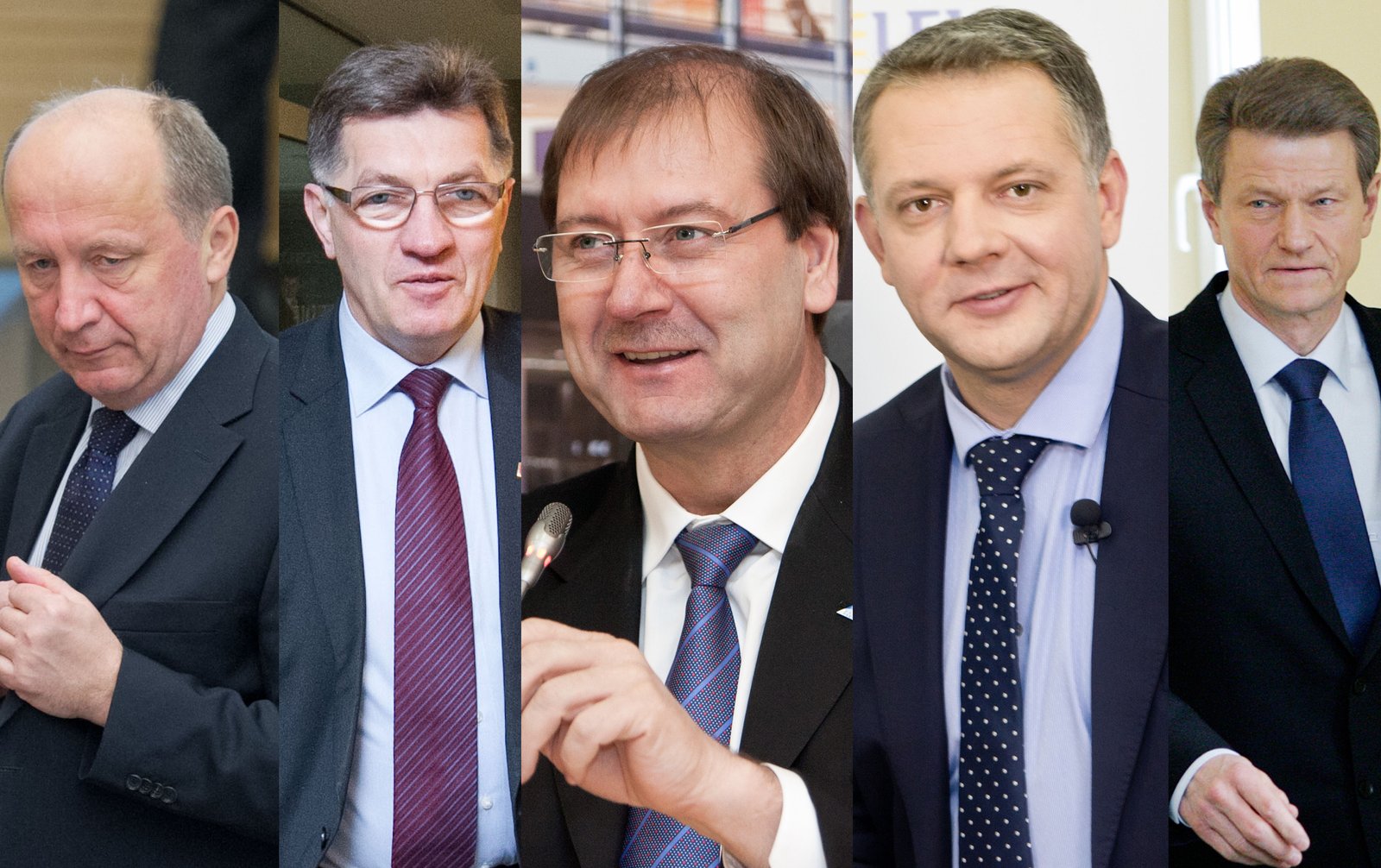

DELFI
According to professor Lauras Bielinis of Vytautas Magnus University (VDU), however, all parties in the Lithuanian parliament, the Seimas, try to appeal to the electorate’s emotions first and only later do they begin to speak more rationally. “While the voter isn’t interested, they will essentially not start thinking seriously about the issues presented. Politicians have to attract attention and this requires an emotional impact. When there’s attention, facts and arguments can be presented more effectively,” explains Bielinis.
The most rational – the Liberals?
According to political scientist Vytautas Dumbliauskas and sociologist Ignas Zokas, the most rational party in the Seimas is probably the Liberal Movement (LS). “The Liberals are very rational, they speak in arguments,” said Zokas, who is the head of public opinion pollster Spinter Tyrimai.
Dumbliauskas notes that the Liberals readily employ irony in their rhetoric, but it is far more appropriate than that of other parties. “I believe that the Liberals are the most rational politicians. They truly act based on arguments, their electorate is more rational as well. Who votes for the Liberals? Businesspeople as well as educated, young, active and entrepreneurial people. They find it important that politicians speak logically,” explained the docent of Mykolas Romeris University (MRU).
Dumbliauskas believes that rationality is exceptionally demonstrated by the leader of the Liberal party, Eligijus Masiulis, as well as its former minister of education Gintaras Steponavičius and Petras Auštrevičius, the party’s representative in the European Parliament.
The Social Democratic party is fairly rational as well, claim Zokas and Dumbliauskas. “They may be less engaged with values, this party doesn’t highlight their values, (…) but they are more rational than the Conservative party,” stated Zokas.
Political scientist Dumbliauskas finds the Conservative party’s stance toward the Social Democrats lacking in seriousness. “The Homeland Union–Lithuanian Christian Democrat (TS-LKD) leaders try to appeal and frighten, the opposition works through emotions and tries to criticize. You can feel irony from its leadership often as if they had some sort of indulgency – as if being on the right makes them the right ones, while the leftist party is just some sort of misunderstanding. I feel like TS-LKD lacks a more serious attitude toward its political opponents. The Social Democrats may indulge in this less, act more rationally and don’t fall into emotional exchanges.”
Meanwhile Zokas thinks that the Conservative party acts amply in a constructive fashion, even though their image is based on emotional rhetoric. “Some of the Conservative voters are very constructive. For example, while Andrius Kubilius was Prime Minister, many valued the Conservative party for some of their constructive actions,” reminds Zokas.
According to Zokas, it is hard to evaluate the Labour Party (DP) as it is a party-chameleon which “jumps around” in the ratings.
“They are experiencing a metamorphosis right now. For many years it was a party of one leader, while now Viktor Uspaskich is seen less in the public eye, while Seimas Speaker Loreta Graužinienė receives more attention. I wouldn’t class this party with the rational group, nor would I put it in the emotional group of parties. Sometimes their rhetoric is emotional, sometimes it contains practical elements,” Zokas told LRT.lt.
Dumbliauskas is more inclined to put both the Labour Party and the Order and Justice party in the group of parties focusing on emotion in their rhetoric. The Labour Party relies heavily on emotions, while Uspaskich’s role is to be that of the guy next door. He tries to be very familiar with the audience, while the Order and Justice party leader Rolandas Paksas tries to portray himself as a martyr, which also works on an emotional level,” explains the political scientist.
Bielinis: the electorate is reacting more and more emotionally to politicians
According to political scientist Bielinis and docent Lidija Šabajevaitė of Vilnius University, most Seimas parties have no lack of emotionality, while the electorate itself often reacts more emotionally than rationally.
“Today voters react to politicians more and more emotionally. This does not mean that the voters are less intelligent, just that such social skills are imprinted by television and the internet. This is all transferred to the voting process. In the dynamics of political elections, we try to find not the rational arguments, but the accents that we would react to and could evaluate, which is mostly based on emotion, not rational calculations,” Bielinis commented.
Šabajevaitė points out that in many Seimas electoral speeches there is often appeals to feelings and emotions. “I do not know what this is based on, whether the politicians think their voters are poorly informed, or whether the party leaders are just on a level of this sort.”
Bielinis explains that almost all parties try to appeal to their voter on an emotional basis, while rationality appears only far later. “While the voter isn’t interested, they will essentially not start thinking seriously about the issues presented. Politicians have to attract attention and this requires an emotional impact. When there’s attention, facts and arguments can be presented more effectively,” explained Bielinis.
While Prime Minister Gintautas Paluckas does not take issue with the statements made by the…
Lithuanian economists are surprised to see our country's economic growth: the Estonian economy has been…
"The fate of Nemuno Aušra (Dawn of Nemunas) in the coalition has been decided; they…
Airvolve, a Lithuanian dual-purpose aeronautics company, has successfully completed its first round of testing and…
The world is becoming smaller, more intertwined, and increasingly fragmented, with many of the previous…
In recent years, Vilnius, the vibrant capital of Lithuania, has experienced a culinary renaissance. While…